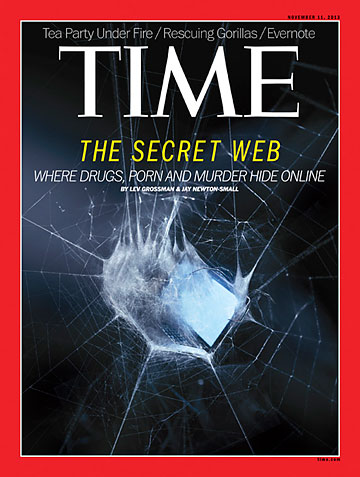
(8 of 8)
What makes the Internet, and particularly the Deep Web, so hard to pin down is that it cuts across so many spheres that used to be strictly separate. It's private and public, personal and professional and political, all at the same time; it has a peculiar way of compressing all the formerly disparate threads of our lives into one single pipeline leading directly into our studies and bedrooms. It's virtually impossible for the law to tease those strands apart again. Right now we're trapped unpleasantly between two ideals, the blissful anonymity of the Net as it was first conceived and the well-regulated panopticon it is becoming. It's the worst of both worlds: the Deep Web provides too much privacy and the rest of the Web not enough.
Ulbricht himself currently has plenty of privacy. He's spending 20 hours a day alone in a cell in an Alameda County jail near Oakland, Calif. On Oct. 16 he hired a New York lawyer named Joshua Dratel, who has some experience with controversial cases. His past clients include several alleged terrorists. "He'll be pleading not guilty whenever he's arraigned on charges," Dratel told TIME. "He denies the charges right now, and he'll continue to deny [them]," he said. Perhaps inevitably, 20th Century Fox has already optioned the story of Silk Road from Wired magazine for a feature film.
Meanwhile, Ulbricht fills his days writing letters to friends and family and reading Patrick O'Brian's Master and Commander. He has no Internet access. He may, however, still have some of his pirate's treasure. On Oct. 25, Bharara announced that, after a prolonged hacking campaign, investigators had gained access to a cache of 122,000 of the Dread Pirate Roberts' bitcoins, worth over $24.9 million. But there may be many more millions out there. People may always be fallible and venal, but technology, at least for the time being, can still keep some of our secrets.
--With reporting by Jessica Roy and Laura Stampler/New York
